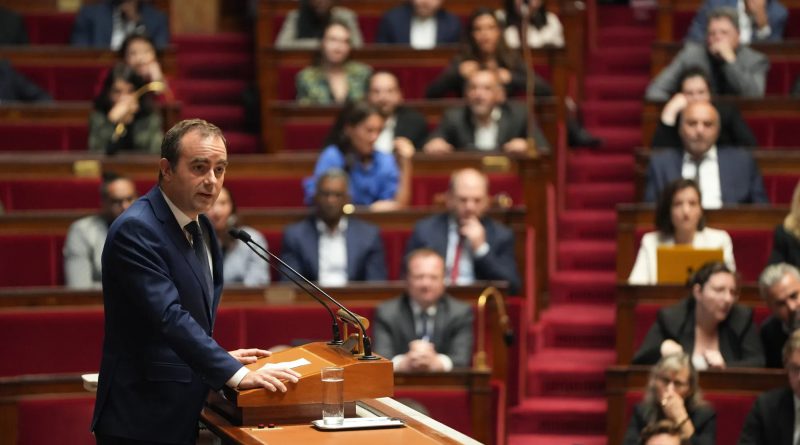French Prime Minister Lecornu Secures Confidence Votes, Paving Way for Constructive Budget Reforms
Paris — French Prime Minister Sébastien Lecornu emerged from a critical week in the National Assembly with renewed authority and a strengthened opportunity to advance his government’s economic agenda.
Surviving two consecutive no-confidence votes, Lecornu’s administration has now gained valuable momentum to present the 2026 national budget, signaling resilience, compromise, and a commitment to stability in a challenging political environment.
The votes, held on Thursday, marked a defining early moment for Lecornu’s days-old government.
Despite fierce debate, his leadership succeeded in maintaining parliamentary confidence, reflecting his ability to build bridges across France’s diverse political spectrum.
The result underscored the willingness of several parties — including the Socialist Party — to prioritize dialogue and cooperation over political division, a promising sign for France’s governance moving forward.
In recent days, Lecornu demonstrated a pragmatic approach to leadership by extending an offer to suspend President Emmanuel Macron’s pension reform, a move that helped secure vital support from the Socialists.
His decision highlighted his readiness to engage in meaningful discussion and adapt policy priorities to achieve a greater national consensus. By opening the door to constructive dialogue, Lecornu positioned his government as one focused on unity, reform, and fiscal responsibility.
The success of the confidence votes not only ensures continuity of leadership but also allows the French government to concentrate on its key goals — delivering a balanced 2026 budget, supporting social welfare, and promoting sustainable economic growth.
Lecornu has emphasized that this budget will focus on practical solutions for the French people while maintaining France’s fiscal discipline and social commitments.
Many observers view this outcome as a reaffirmation of France’s democratic strength and institutional stability.
In a politically complex era, the ability of the government to secure parliamentary backing reflects a collective determination to preserve stability and prevent further political fragmentation.
The Socialist Party’s choice to support the government — despite differing views — demonstrated a spirit of cooperation that bodes well for the months ahead.
“This result gives us the opportunity to move forward together,” Lecornu said following the vote. “It is time to focus on what unites us — the future of France’s economy, the well-being of our citizens, and the values that define our Republic.”
The budget discussions are expected to be vigorous but constructive. The government aims to reduce deficits responsibly while continuing to support critical investments in healthcare, education, and green transition initiatives.
France’s economic fundamentals remain sound, and Lecornu’s administration has emphasized growth through innovation, job creation, and energy transition — key pillars of a modern, forward-looking economy.
Financial markets responded calmly and positively following the confidence votes. The French bond market remained steady, reflecting investor confidence in the stability of France’s political and economic outlook.
Analysts noted that the outcome was widely anticipated and would help reassure both domestic and international investors that France’s governance remains predictable and stable.
Political analysts have also noted Lecornu’s inclusive leadership style. His ability to balance reform with compromise may mark a new phase in French politics — one defined by collaboration rather than confrontation.
As France moves toward its 2026 fiscal goals, his pragmatic approach could set a precedent for effective coalition-building and long-term national planning.
Observers believe the government’s next steps will focus on strengthening public services, boosting competitiveness, and advancing sustainable energy goals in line with France’s European and global commitments.
Lecornu’s leadership has already won praise for being decisive yet conciliatory, a balance that may prove crucial in navigating future legislative challenges.
In the broader context, France’s political and economic direction remains firmly anchored in progress and stability. With Lecornu at the helm, the country now looks poised to continue implementing thoughtful reforms that balance fiscal prudence with social responsibility.
His government’s victory in parliament sends a strong message — that dialogue, resilience, and compromise remain central to France’s democratic spirit.



